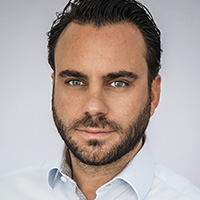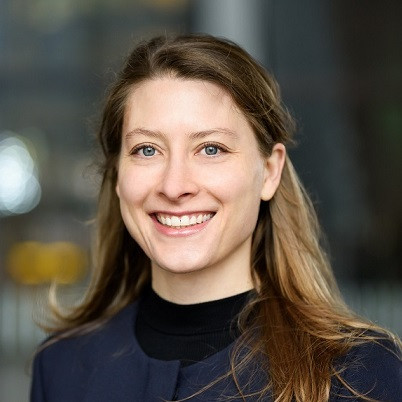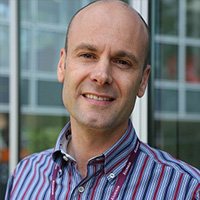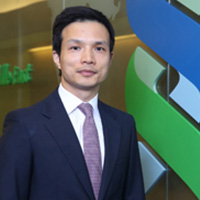During the programme, I opened six new international offices and today, we have 160 employees.
Renan Bourdeau

Why did you choose INSEAD for your EMBA?
As an entrepreneur, I wanted to enhance my entrepreneurial skills and felt strongly about being in an environment that would allow me to do just that. I knew that the INSEAD EMBA would provide me with opportunities to focus on entrepreneurship, as I felt that the other top schools were much more corporate or finance oriented. INSEAD’s international dynamic and the diversity of its strong alumni network were also factors which convinced me that it was the right fit.
Was INSEAD’s famous diversity important too?
Absolutely. Having worked throughout the world, it was important for me to be surrounded by different cultures. In fact, I’d lived in the Middle East for seven years, but it was only when I went to INSEAD that I finally managed to break that “invisible wall” between the Emirati and Western ways of doing business. Today, I have staff of 27 different nationalities working in my company and I manage teams in seven different locations. A perfect reflection of the diversity that you would find in an INSEAD classroom, it was this very diversity that made me choose INSEAD over others.
How has your role changed since doing the GEMBA? What does an already-successful entrepreneur get out of it?
The main change is that our business has grown. When I started my EMBA, we had 21 employees and one location. During the programme, I opened six new international offices and today, we have 160 employees. The GEMBA enabled me to scale up on multiple dimensions. Externally, we now seek much higher levels of investment than before, while internally, we have grown by hiring much more senior people than ever. INSEAD gave me the credibility and confidence for both. I feel much more comfortable engaging with investors, venture capitalists and managing directors who have come to us from senior levels of multinational companies. Although I never saw myself as being that confident, my friends told me that I was a different person by the time I had finished the GEMBA.
How did you manage to juggle all that while doing the programme?
It was crazy but exhilarating. During the 18 months of the programme, I counted that I had taken more than 100 flights – for work, GEMBA modules or just to travel to Russia and Kazakhstan to discover new business opportunities. And, thanks to my classmates, I also opted to go on the field trip to Brazil, which was an elective course for our class and an opportunity not to be missed. It was really thanks to my wife that I managed to juggle it all. She held everything together at home.
Why do a field trip to Brazil if you work in the Middle East?
The focus was on emerging markets in general, so it was highly relevant to my business, and it was an amazing experience. I learnt that many of the challenges faced in Brazil were similar to the ones in the Middle East, as it’s common to emerging markets. We met a new CEO every day, as well as people close to the president. I really appreciated the fact that INSEAD had found such great companies to visit and such fantastic people to come and speak to us – which added a new dimension to the classroom learning.
Do you use what you learnt in the classroom too?
I kept all my folders in my office and I think of INSEAD as a big book containing all the solutions to all the challenges you might ever face in business. You can’t possibly learn it all, but after INSEAD you know where to find the answers. In my case, I start with the folder, and then contact one of my classmates, usually an expert on the subject. The INSEAD network is like having free consultancy – all over the world!
Can you describe the human factor at INSEAD?
I thought it would be a very competitive environment, but everyone was very willing to help everyone else. The CFOs in our class used to give us extra tutorials if there was something in the finance course we didn’t understand. I also had classmates who never hesitated to give advice or support on the subjects any one of us was experiencing difficulties in, even if it meant staying out late. As you meet people from different cultures, backgrounds and industries, you form teams of people who can analyse business issues from completely different perspectives. It all becomes very complementary in the end.
The strange thing is that the classmate I’m probably closest to is a consultant, even though I feel it’s the job that’s furthest away from being an entrepreneur. Despite our generally different attitudes, we can analyse each other’s problems and give each other feedback in the most surprising way. All my classmates and I still keep in touch through our WhatsApp group chat. Whenever one of us has a question, needs advice or is looking for a contact, he/she gets an immediate answer. Although I graduated two years ago, I still welcome classmates in my company through our Peer Exchange programme. My Leadership Development Programme group members and I also try to stay connected, so we can still provide each other support when needed.
What advice would you give to future participants?
Do your EMBA with the full support of your wife or partner. I have a wife and two kids, so I learnt the hard way, that studying while working affects your entire family. It’s essential that they’re all on board. Having said that, you must take the challenges as an opportunity, rather than a burden. The more you put in, the more you’ll get out. If you share your thoughts and what you’re feeling in the Leadership Development Programme, you will learn much more. You’ll never have such a great opportunity to learn about yourself – or to gain a completely new angle on business.




